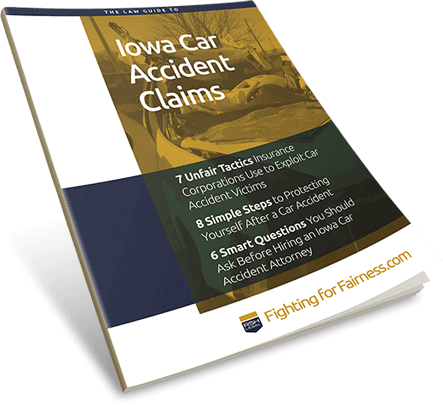After a serious Iowa car accident, it’s likely you had to go to the hospital or see your doctor for your injuries. You may be wondering if you should submit those medical bills to your own health insurance.
Most people are surprised to learn that you should submit your crash-related medical bills to your health insurance company, even if someone else is at fault for the crash.
The defendant’s car insurance company is only ever going to write you one check at the very end of your lawsuit. That may come in for the form of a settlement, or after a jury reaches a verdict for a specific dollar amount.
In the meantime, your healthcare providers will want to get paid. If they do not get paid in a timely fashion, there is nothing preventing them from submitting your bills to collections – potentially ruining your credit.
Here are some things you need to know about submitting your medical bills to your health insurance:
- You Only Have a Limited Amount of Time to Submit Crash-Related Medical Bills
Most health insurance companies have a window in which you have to submit medical bills after you have had the treatment. For example, some health insurance companies require you to submit the bills within thirty or sixty days of treatment.
If you don’t, under the terms of your health insurance policy, the health insurance company can deny coverage. There is never any guarantee you will get paid out of your car crash case to cover these bills, so you should submit your bills promptly after receiving them.
- You May Not Get Enough Money in Your Car Accident Settlement
There is always a risk that the car insurance company won’t offer a settlement that is enough to cover your bills, or that a jury will return a verdict that doesn’t cover your medical bills. If that happens, you will be glad you submitted your medical bills to health insurance, so you won’t have outstanding medical bills to worry about.
- Make Sure Your Medical Bills Are Being Submitted Properly
You need to keep an eye on the bills from the hospital to make sure they are being submitted to health insurance. Often when you go to the doctor, you will be asked if your medical care is related to a crash. If you answer “yes,” the health provider may automatically hold your bills in an outstanding balance as opposed to submitting them to health insurance.
You will need to deliberately tell some providers to submit the bills to your health insurance. You’ll want to keep an eye on the bills because sometimes you must give a friendly reminder to your providers to submit these bills to health insurance.
- You May Be Allowed to Carry an Unpaid Balance
Sometimes these providers will allow you to carry an unpaid balance without sending you to collections in the hopes they will get paid dollar for dollar for the cost of their care, instead of accepting a discounted rate from a health insurance company.
The problem is if you miss the window to submit to health insurance, and you don’t receive enough money in your settlement to cover your medical bills, you’ll be left with an outstanding balance.
- Submitting Your Bills to Your Own Health Insurance May Save You Money
Submitting to health insurance can actually save you money in the long run. If you pay a provider back directly out of your lawsuit, you’ll be paying back 100% of the value of the care—what we call the “sticker price” for medical care.
As stated above, health insurance companies pay a discounted rate for your health care. If you recover money in a lawsuit, you’ll be contractually obligated to pay your health insurance company back for what it paid in medical costs for your crash injury. This is called “subrogation.” However, you’ll only be paying back the discounted rate for your medical care, not the “sticker price” directly to the provider.
Moreover, some health insurance companies will reduce even further what you have to pay back, an amount that is equal to the contingency fee percentage you’ve agreed to in the contract with your attorney.
- Medical Payment Coverage Can Help Offset Your Bills
You may have something called “medical pay” or “med pay” coverage through your own personal car insurance. Usually, this is a low amount of coverage that your own insurance providers to cover medical bills after the crash.
Typically, we see amounts ranging from $5,000 to $10,000. Health providers like to use up your med pay because again, they can charge the sticker price for medical care.
What we recommend doing instead is submitting your bills through health insurance, and then providing proof of the amount you’ve paid for co-pays and deductibles to your car insurance to be reimbursed out of your med pay. That allows you to stretch those dollars further.
Contact an Iowa Attorney If You Have Questions
If you have any other questions about how to handle your medical bills after a crash, you should contact RSH Legal at 1-800-433-0283.




